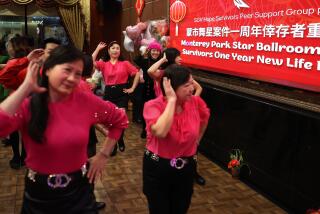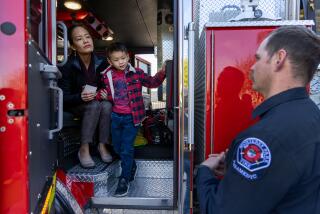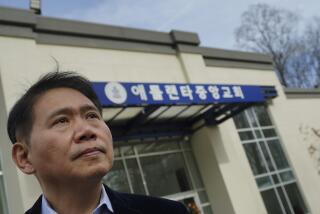Thousands in Charleston unite to join in prayer and mourn
The arena where more than 4,000 Charleston residents came together to pray Friday night is normally a place of excitement, where the city cheers on its college basketball teams.
But it was transformed Friday into a place of mourning -- a bulwark, some said, against the evil that took nine lives Wednesday night and a support group for about 60 members of the grieving families.
Most of the seats at TD Arena were filled as preachers from different faiths joined city, county and state officials to urge those present to stand by the grieving and to recognize in the outpouring of emotion how the killer had brought the community together, not driven it apart.
“If that man thought he could divide this city or this country with his racial hatred, we are here today to say he miserably failed,” said the city’s popular mayor, Joseph P. Riley Jr., who is serving an unprecedented 10th term.
“Our diversity is not a weakness, it is a strength,” Riley said, as the predominantly white audience wildly applauded.
There was an undertone of political division, however, as the mayor and other speakers reiterated long-standing pleas for the state to remove the Confederate battle flag from the Capitol grounds in Columbia and for the country to pass laws to restrict the use of guns.
Noting that Dylann Roof, the suspected shooter, had easy access to a handgun, Riley said, “we can’t just forget about this. There has got to be a better way. We do not want to live in a country where we need a security guard in a Bible center.”
Although the service was uplifting, some in attendance worried about underlying problems in a city with a view of the site where the first shots of the Civil War were fired.
Calvin Malone, a Baptist minister, and his wife, Janice, an elementary school principle, brought their 16-year-old son, Khalil, to the service.
Malone, who lost close friends in the shooting, said that he believed Roof’s racial prejudice comes “from a deep culture that supports that kind of attitude.”
Such racism is “systemic, a cancer that is a vestige of the old,” in which African Americans go to work with whites, “then go back to our different places,” he said.
Janice Malone said most of the schools in the city are segregated, some 100% minority, because whites go to private schools.
Khalil, however, said he sees a different problem -- how, being a black teenager, he lives in fear of the police. “I’ve got to watch my back everywhere I go,” he said.
Follow @TimPhelps for national news
More to Read
Start your day right
Sign up for Essential California for news, features and recommendations from the L.A. Times and beyond in your inbox six days a week.
You may occasionally receive promotional content from the Los Angeles Times.







